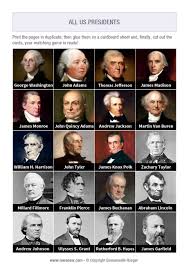By Onyeche Igwe
George Washington (1789-1797)
George Washington was the first President of the United States and is often referred to as the “Father of His Country.” He set many precedents for the national government and the presidency, including the tradition of a peaceful transfer of power. Washington led the nation through its early years, helping to establish the new federal government and the executive branch. His leadership during the American Revolutionary War and his role in drafting the Constitution were pivotal to the nation’s founding.
John Adams (1797-1801)
John Adams
John Adams, the second president, was a leading advocate of American independence from Great Britain. He played a key role in negotiating the Treaty of Paris, which ended the Revolutionary War. His presidency was marked by the Quasi-War with France and the controversial Alien and Sedition Acts. Despite his unpopularity due to these acts, Adams is also credited with helping to establish the United States Navy.
Thomas Jefferson (1801-1809)
Thomas Jefferson
Thomas Jefferson, the third president, is best known for the Louisiana Purchase in 1803, which doubled the size of the United States. He was the principal author of the Declaration of Independence and founded the University of Virginia. Jefferson’s presidency also saw the Lewis and Clark Expedition, which explored the newly acquired western territories.
James Madison (1809-1817)
James Madison
James Madison, known as the “Father of the Constitution,” played a crucial role in drafting and promoting the U.S. Constitution and the Bill of Rights. His presidency is most notable for the War of 1812 against Great Britain, which ended in a stalemate but confirmed American independence and strengthened national identity.
James Monroe (1817-1825)
James Monroe
James Monroe is best remembered for the Monroe Doctrine, a key foreign policy statement that warned European nations against further colonization and intervention in the Americas. His presidency, known as the “Era of Good Feelings,” was marked by national unity and economic growth following the War of 1812.
John Quincy Adams (1825-1829)
John Quincy Adams
John Quincy Adams, the son of John Adams, is noted for his efforts to modernize the American economy and promote education. His presidency faced opposition in Congress, but he later became a prominent advocate for abolition as a member of the House of Representatives.
Andrew Jackson (1829-1837)
Andrew Jackson
Andrew Jackson, the seventh president, is known for his role in the expansion of democracy and his controversial policies, including the Indian Removal Act, which led to the Trail of Tears. He was a war hero from the Battle of New Orleans during the War of 1812 and the founder of the Democratic Party.
Martin Van Buren (1837-1841)
Martin Van Buren
Martin Van Buren, a key organizer of the Democratic Party, faced economic hardship during his presidency due to the Panic of 1837. He continued many of Jackson’s policies and is remembered for his efforts to maintain the integrity of the Union during a time of rising sectional tension.
William Henry Harrison (1841)
William Henry Harrison
William Henry Harrison holds the distinction of having the shortest presidency in American history, dying just 32 days after taking office. He was a military officer and politician, known for his role in the Battle of Tippecanoe.
John Tyler (1841-1845)
John Tyler
John Tyler succeeded Harrison and was the first vice president to become president due to the death of his predecessor. His presidency was marked by efforts to annex Texas and his commitment to states’ rights, which led to conflicts with Congress.
James K. Polk (1845-1849)
James K. Polk
James K. Polk is known for his role in expanding the United States through the Mexican-American War, which resulted in the acquisition of territories that now include California, Nevada, and Utah. His presidency also saw the establishment of the Independent Treasury System.
Zachary Taylor (1849-1850)
Zachary Taylor
Zachary Taylor, a career military officer, is remembered for his brief presidency and his stance against the expansion of slavery into the new western territories. He died unexpectedly in office after serving just over a year.
Millard Fillmore (1850-1853)
Millard Fillmore
Millard Fillmore succeeded Taylor and is known for signing the Compromise of 1850, a series of laws intended to address the tensions between free and slave states. His enforcement of the Fugitive Slave Act, part of the compromise, was highly controversial.
Franklin Pierce (1853-1857)
Franklin Pierce
Franklin Pierce’s presidency is often criticized for his support of the Kansas-Nebraska Act, which allowed new territories to decide on the legality of slavery, leading to violent conflict known as “Bleeding Kansas.” His administration is seen as a failure to address the growing sectional divisions in the country.
James Buchanan (1857-1861)
James Buchanan
James Buchanan is often ranked among the least effective presidents due to his inability to prevent the secession of Southern states, which led to the Civil War. His administration was marked by tensions over slavery and the Dred Scott decision.
Abraham Lincoln (1861-1865)
Abraham Lincoln
Abraham Lincoln is one of the most revered presidents in American history. He led the nation through the Civil War, preserved the Union, and issued the Emancipation Proclamation, which began the process of freeing the slaves. Lincoln’s leadership and vision for a united country are celebrated, though he was assassinated in 1865 shortly after his second term began.
Andrew Johnson (1865-1869)
Andrew Johnson
Andrew Johnson, who succeeded Lincoln, faced the immense challenge of Reconstruction after the Civil War. His lenient approach to the Southern states and frequent clashes with Congress led to his impeachment, though he was acquitted by one vote in the Senate.
Ulysses S. Grant (1869-1877)
Ulysses S. Grant
Ulysses S. Grant, a Civil War hero, served two terms and focused on Reconstruction and protecting the civil rights of freed slaves. His presidency was marred by numerous scandals and corruption among his administration’s officials.
Rutherford B. Hayes (1877-1881)
Rutherford B. Hayes
Rutherford B. Hayes ended Reconstruction by withdrawing federal troops from the South as part of the Compromise of 1877. His presidency focused on civil service reform and efforts to reconcile the divisions left by the Civil War.
James A. Garfield (1881)
James A. Garfield
James A. Garfield’s presidency was cut short when he was assassinated just months after taking office. Despite his short term, he advocated for civil service reform and sought to reduce political corruption.
Chester A. Arthur (1881-1885)
Chester A. Arthur
Chester A. Arthur succeeded Garfield and is best known for his efforts to reform the civil service with the Pendleton Civil Service Reform Act. His presidency helped lay the groundwork for a more professional and less corrupt federal workforce.
Grover Cleveland (1885-1889, 1893-1897)
Grover Cleveland
Grover Cleveland is the only president to serve two non-consecutive terms. His first term focused on fighting political corruption and promoting fiscal conservatism. During his second term, he dealt with the Panic of 1893, a severe economic depression.
Benjamin Harrison (1889-1893)
Benjamin Harrison
Benjamin Harrison, the grandson of William Henry Harrison, oversaw the passage of the McKinley Tariff and the Sherman Antitrust Act. His administration is noted for its efforts to modernize the Navy and its involvement in the first Pan-American Conference.
William McKinley (1897-1901)
William McKinley
William McKinley’s presidency is marked by the Spanish-American War, which resulted in the United States acquiring territories such as Puerto Rico, Guam, and the Philippines. His leadership saw the country emerge as a global power. McKinley was assassinated in 1901.
Theodore Roosevelt (1901-1909)
Theodore Roosevelt
Theodore Roosevelt is known for his progressive policies, including trust-busting, conservation efforts, and the establishment of national parks. His “Square Deal” domestic program aimed to protect consumers, regulate corporations, and conserve natural resources.
William Howard Taft (1909-1913)
William Howard Taft
William Howard Taft focused on antitrust enforcement and expanding the civil service. His presidency is also noted for his efforts in tariff reform, though he faced criticism from progressive elements within his own party.
Woodrow Wilson (1913-1921)
Woodrow Wilson
Woodrow Wilson’s presidency saw the United States through World War I. He is known for his efforts to promote the League of Nations and his progressive domestic policies, including the Federal Reserve Act and antitrust legislation.
Warren G. Harding (1921-1923)
Warren G. Harding
Warren G. Harding’s presidency is often associated with scandals such as Teapot Dome, though he is also remembered for his efforts to restore normalcy after World War I. He died in office in 1923.
Calvin Coolidge (1923-1929)
Calvin Coolidge
Calvin Coolidge is known for his laissez-faire approach to government and his emphasis on reducing taxes and government spending. His presidency saw a period of economic prosperity known as the “Roaring Twenties.”
Herbert Hoover (1929-1933)
Herbert Hoover
Herbert Hoover’s presidency was overshadowed by the onset of the Great Depression. His efforts to combat the economic crisis were seen as inadequate, and he is often criticized for his inability to provide effective relief.
Franklin D. Roosevelt (1933-1945)
Franklin D. Roosevelt
Franklin D. Roosevelt led the country through the Great Depression and World War II. His New Deal programs aimed to provide relief, recovery, and reform to a struggling nation. Roosevelt’s leadership and vision for a more active federal government left a lasting impact on American society.
Harry S. Truman (1945-1953)
Harry S. Truman
Harry S. Truman is known for making the decision to use atomic bombs on Japan to end World War II and for his efforts to contain communism through the Truman Doctrine and the Marshall Plan. His presidency also saw the beginning of the Korean War.
Dwight D. Eisenhower (1953-1961)
Dwight D. Eisenhower
Dwight D. Eisenhower’s presidency was marked by the end of the Korean War, the expansion of the interstate highway system, and efforts to combat communism during the Cold War. He also supported civil rights, sending federal troops to enforce school desegregation in Little Rock, Arkansas.
John F. Kennedy (1961-1963)
John F. Kennedy
John F. Kennedy is remembered for his inspiring leadership during the Cuban Missile Crisis, his efforts to advance civil rights, and his vision for space exploration, epitomized by the goal to land a man on the moon. He was assassinated in 1963.
Lyndon B. Johnson (1963-1969)
Lyndon B. Johnson
Lyndon B. Johnson’s presidency is known for his “Great Society” programs, which aimed to eliminate poverty and racial injustice. Major legislative achievements include the Civil Rights Act and the establishment of Medicare and Medicaid. His escalation of the Vietnam War, however, led to widespread protest and controversy.
Richard Nixon (1969-1974)
Richard Nixon
Richard Nixon is known for his efforts to improve relations with China and the Soviet Union, as well as his domestic policies that included the establishment of the Environmental Protection Agency (EPA). His presidency ended in scandal with the Watergate affair, leading to his resignation in 1974.
Gerald Ford (1974-1977)
Gerald Ford
Gerald Ford is remembered for his efforts to heal the nation after Watergate and his controversial decision to pardon Richard Nixon. His administration faced economic challenges, including inflation and unemployment.
Jimmy Carter (1977-1981)
Jimmy Carter
Jimmy Carter’s presidency is noted for his emphasis on human rights, the Camp David Accords between Egypt and Israel, and efforts to address the energy crisis. His administration faced significant challenges, including the Iranian hostage crisis and economic difficulties.
Ronald Reagan (1981-1989)
Ronald Reagan
Ronald Reagan’s presidency is remembered for his conservative economic policies, known as “Reaganomics,” which included tax cuts, deregulation, and a focus on reducing government spending. His administration played a key role in ending the Cold War through a strong stance against the Soviet Union.
George H. W. Bush (1989-1993)
George H. W. Bush
George H. W. Bush’s presidency is marked by his leadership during the Gulf War, which successfully liberated Kuwait from Iraqi occupation. His domestic policies included efforts to address the budget deficit and the Americans with Disabilities Act.
Bill Clinton (1993-2001)
Bill Clinton
Bill Clinton’s presidency saw economic prosperity and a budget surplus. He is noted for his efforts to reform welfare and his work on international trade agreements such as NAFTA. His administration was marred by the Monica Lewinsky scandal, leading to his impeachment, though he was acquitted by the Senate.
George W. Bush (2001-2009)
George W. Bush
George W. Bush’s presidency is defined by the response to the September 11, 2001, terrorist attacks and the subsequent wars in Afghanistan and Iraq. His domestic policies included tax cuts and efforts to reform education with the No Child Left Behind Act. His administration also faced criticism for its handling of Hurricane Katrina.
Barack Obama (2009-2017)
Barack Obama
Barack Obama, the first African American president, is known for his efforts to reform healthcare with the Affordable Care Act (Obamacare), his response to the Great Recession, and his focus on climate change and renewable energy. His foreign policy achievements include the killing of Osama bin Laden and the Iran nuclear deal.
Donald Trump (2017-2021)
Donald Trump
Donald Trump’s presidency is known for its emphasis on “America First” policies, including efforts to renegotiate trade agreements and stimulate economic growth through tax reform and deregulation. His administration also focused on enhancing border security and immigration control.
Joe Biden (2021-Present)
Joe Biden
Joe Biden’s presidency began with a strong focus on combating the COVID-19 pandemic through vaccination campaigns and economic recovery initiatives. His administration also prioritizes addressing climate change, promoting social justice, and strengthening international alliances.









